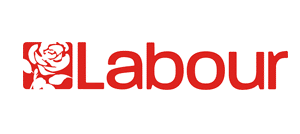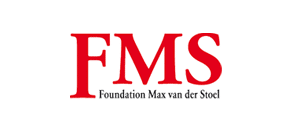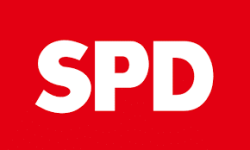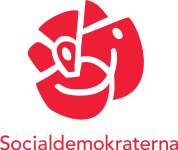Serbia
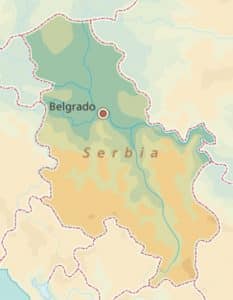
The transformation of Serbia since the break-up of Yugoslavia in the 1990s has been very dynamic, to say the least. From a dictatorship heavily involved in the wars in Bosnia-Herzegovina and Kosovo bombed by NATO, via a peaceful revolution and democratization, towards a semi-authoritarian regime that has opened the EU accession negotiations in January 2014. In April 2017, outgoing Prime Minister Alexander Vučić (Serbian Progressive Party, SNS) was elected President. Under his rule, Serbia has experienced democratic backsliding into authoritarianism or autocracy. Vučić and his SNS party have entrenched political executive powers, limited freedom of expression, harass free, independent journalism and hamper indepenedent election monitoring. As a consequence, many people took to the streets in Belgrade to protest against, what they saw as authoritarian rule in Serbia.
On June 21, 2020, Vučić’ SNS party took a landslide win at the parliamentary polls as the complete opposition boycotted the elections – protesting the dysfunctional Serbian political landscape. This gave Vučić extensive powers in Parliament. Since then, his rule is characterized by illiberal tendencies and the juggling of foreign power influences, mainly from the EU and Russia. In the end of 2021, many Serbians took to the streets to protest against lithium mining in the country by foreign companies – this had caused extensive pollution, a big problem in Serbia.
In January 2022, Vučić organized a constitutional referendum that eyed a change in the Serbian judiciary to bring it in line with EU guidelines. Sixty percent voted in favour of Vučić’ changes. Opposition parties were critical of the referendum, as Vučić remains very powerful over the judicial and executive powers in Serbia.
On 23 April 2023, elections took place in northern Kosovo in four municipalities. It recorded the lowest turnout ever in the country’s history at just 3.47%. Pro-Serbian political parties had boycotted these local elections. Despite this alarmingly low turnout, the government in Pristina decided to move along with the results. As the newly sworn in mayors attempted to enter their offices – ethnically Serb protestors clashed with police escorting the mayors. Five policemen were injured as a result. Attempts by the US and several EU countries to de-escalate would prove to be futile, as a large-scale clash with police and the NATO-led peacekeeping force KFOR occurred on 29 May. In July 2023, Kosovo’s government announced that it will reduce by one-quarter the number of special police deployed around administrative buildings in the ethnic Serb-majority north and organise fresh mayoral elections in four northern municipalities as part of measures to de-escalate simmering tensions with neighbouring Serbia.
On 17 December 2023, early parliamentary elections were held in Serbia. The elections were deemed crucial amid geopolitical turbulence and the organisation of a joint political opposition. As expected, the Serbian Progressive Party (SNS) won a majority of parliament even without its loyal ally the Socialist Party of Serbia (SPS).
-
Want to get notified by mail when this country gets updated?
Subscribe to our newsflash below!
Key Info
-
Population: 6,844,078 (World Bank 2021)
-
Governmental Type: Republic
-
Ruling Coalition: Cabinet of Ana Brnabić III
-
Last Elections: December 17, 2023 (parliamentary & local elections)
-
Next Elections: 2027 (parliamentary & presidential elections)
-
Sister Parties: Democratic Party, (DS), Social Democratic Party (SDS)
1 Political Situation
1.1: Serbian transformation
Hopes were high after the citizens and social movement Otpor (Resistance) toppled the Milošević regime in 2000 without a single bullet being fired. A pro-European Democratic Opposition of Serbia (DOS) coalition took over power and one of the main parties within that coalition, the centre-left Democratic Party (DS) – remained in power for the most time until 2012. On the one hand, the rule of law, freedom of the press and European integration got a tremendous boost with the downfall of the dictatorship. On the other hand, the country did not manage to develop its economy sufficiently and give hope to the young people who are leaving, while the ruling elite did not manage to change the political culture. In addition, the relations with Kosovo continued to be a political burden. Milošević’s former nationalist political partners used this disappointment to wrap themselves in a European flag and win parliamentary and presidential elections since 2012. Current President Vučić served as minister of information during the Milošević’s regime.
1.2: Current Political Situation
Before the 2022 elections, Serbia was under the rule of President Vučić and the ruling coalition “For our Children”, in which Vučić’ SNS co-operates with various parties, the biggest being the Socialist Party of Serbia (SPS). Opposition parties have increasingly faded to the background after a number of early elections, including the 2020 elections that opposition parties boycotted. As a consequence, For our Children won by a landslide.
During the covid-19 pandemic in the summer of 2020, various anti-government protests erupted in Serbia. Not only were people protesting against the measures, but also over election fraud allegations and wider concerns over the state of democracy. The protests were first met by violent police response, but they continued even after the government announced a repeal of the announced COVID-measures. After several weeks the protests died down, but political unrest remains.
Environmental protestors took to the streets on 27 November 2021 to protest against a new mining project and two new laws which they say will give extensive rights to foreign mining companies. Serbia’s government has offered mineral resources to foreign companies such as the Australian-British Rio Tinto that wish to exploit lithium in the country. Pollution is already a major issue in Serbia, with the state being one of the most polluted countries in Europe.
On January 16, 2022, Serbian voters approved constitutional changes that the government said were part of a reform process. Nearly 60% of people who cast ballots voted in favour of the amendments that focus on the election of judges and prosecutors, while nearly 40% were against. The constitutional changes are related to the selection of judges and prosecutors. The changes were proposed by the government of Serbia in order to ensure “greater independence, efficiency and responsibility of the judiciary, greater independence and responsibility of the public prosecutor’s office, better protection of citizens’ rights and strengthening the rule of law”.
The independence of the judiciary is a requirement for EU integration, one which has long impeded the process. Opposition parties and independent experts have argued that the referendum was organized in a “generally non-democratic atmosphere”, too hastily and too soon before April 2022 general elections. Other critics claim that political influence is still possible because of the way the members of the High Judiciary Council and High Council of Prosecutors are chosen.
Ahead of the important April 3, 2022 general elections, Russia invaded Ukraine. Serbia also has a peculiar position regarding the Russian invasion of Ukraine. It did join an UN resolution that condemned the invasion – causing a rebuke from Moscow – but did not join EU sanctions. Many Serb voters dislike Western institutions and are pro-Russian, as NATO allies bombed and sanctioned Belgrade in the 1990s. Russia also supports Serbia’s claims over Kosovo. Throughout March, mass protests were organized in Belgrade that supported Russia. Vučić is in a balancing act between national and international demands – as Serbia also wants to join the EU. A government source indicated that Vučić is more likely to meet EU demands after the elections: “We just need time,” said a government source. “We need a few more weeks to finish the campaign…then it will be much easier to do whatever needs to be done.”
The position of Serbia vis-à-vis Russia was an important boost for Vučić’ popularity, who could position himself as the strongman, trustworthy candidate against opposition candidate Zdravko Ponos. In the April 3 general elections, Vučić and his SNS party won big. For more on the previous elections see the ‘elections’ page.
1.3: Political Rights and Civil Liberties
With nationalists back in power since 2012, rule of law and democracy regressed. Institutions are weak, not independent, and distrusted by the citizens. As a consequence, citizens’ main way to participate in political life is by voting at elections. At the same time, the turn-out at the elections is low: 56% at the 2016 elections and less than 50% in 2020. While civil society is putting effort to improve the quality of democracy, the government is reluctant to engage in a dialogue with (civil) society, framing internationally financed civil society as ‘foreign agents’. Investment in active citizenship and knowledge about the political system is lacking while these are important tools to enhance democracy. Media freedom-wise Serbia is moving in the ‘’Macedonia direction’’: total control of the public broadcaster and all other major media by the government. Editors and managers from (formerly) independent media outlets are being fired, or decide to quit their job, some being afraid of verbal and physical attacks on them and their family. In addition, there is no transparency in media ownership.
1.4: Human Rights and Gender Equality
Despite laws and policies promoting gender equality in Serbia, women are underrepresented in decision-making positions, and domestic violence prevails. Serbia has the highest rate of domestic violence in Europe, with half of women in Serbia suffering under it. Furthermore, gender discrimination and structural barriers lead to a gender pay gap and a lower labour force participation for women than men.
Apart from gender inequality, discrimination persists against minorities. LGBTQ+ individuals are officially protected under the law, though attacks and threats of LGBTQ+ individuals remain an issue, while investigations are often slow and prosecutions rare. The Roma ethnic group also suffers discrimination in Serbia, though efforts are being made, and they have officially been recognized as a national minority, on the basis of which they enjoy the rights to protection of their identity. Nevertheless, public stereotypes remain, leading to discrimination against the Roma community.
1.5: International Politics
After years of strained relations between Serb and Albanian inhabitants in Serbia, Kosovo declared independence from Serbia in 2008. This declaration has been recognized by a number of major EU countries as well as the US, but not by Serbia itself. As a result, tensions between Kosovo and Serbia remain, though there have been efforts to bring peace to the area. In 2013, Belgrade and Pristina signed a historic deal, mediated by Brussels, normalizing relations, opening their way towards EU integration and granting Serb majority municipalities in Kosovo broad powers in education, health care and spatial planning. The implementation of the deal on the ground remains a major challenge. The agreement had positive effects for Serbia and Kosovo concerning the EU integration. Serbia opened the accession negotiations, while Kosovo signed its first agreement with the EU that lead to the Stabilisation and Association Agreement.
As a result of the breakthrough with Kosovo, the Stabilisation and Association Agreement between the EU and Serbia entered into force in September 2013. Three months later the Council adopted the negotiating framework, wherefore Serbia could hold the first Intergovernmental Conference on 21 January 2014. This date marks the formal start of the accession negotiations. In line with the new EU strategy, chapters 23 (rule of law) and 24 (fundamental rights) were two of the first to be opened. The government, however, did not use this opportunity to propagate the reforms related to these chapters as the action plan was adopted quietly in the parliament, with MP’s obtaining the action plan one hour before the vote. Although the perspective of European integration had a big impact on the transformation of Serbian politics, and society to a certain extent, it lacked a long-term sustainable approach. Moreover, the ruling elite misused European integration to legitimise all their actions; this “we-have-to-do-this-because-the-EU-says-so” attitude resulted in slow transformation during which the political elite acted like it was not in the interest of Serbia to engage in the European integration-related reforms. The long-term prospect of EU membership is not enough for the political elites in the region to reform. This is also shown by the fact that Serbia is not aligning her foreign affairs policy to the EU’s policies.
Furthermore, the government is successfully creating an image of the strong historical, brotherly and spiritual relations between Serbia and Russia. Although the debate about the relations with Russia is blown out of proportions, the ‘love’ for Russia – after Belarus Serbia scores the best when it comes to the popularity of Russia – offers the nationalist political elite an escape card when recognition of Kosovo will be demanded as a prerequisite for EU membership. Not only are the ties with Russia being strengthened, but also those with China. The two countries have found common ground through China’s Belt and Road Initiative (BRI) and through China’s support to Serbia throughout the COVID-19 pandemic. To conclude: Serbia has turned away from its sole EU-perspective, and is currently balancing West, Russia, and China. Prior to the parliamentary elections in 2020 President Vučić explicitly indicated that Serbia will continue to balance its ties between the power blocks. In 2022, as Russia invaded neigbouring Ukraine, this balancing approach has come under heavy pressure as European states sanction Russia. Serbia has been pressured to join sanctions and condemnations, but is reluctant to do so.
Serbia signed an association agreement with the EU in 2008, applied for membership in December 2009 and obtained candidate membership in March 2012. Accession negotiations began in January 2014. These negotiations have been delayed due to its open stance towards Russia and rising tensions with Kosovo. The European Commission says in its 2023 enlargement report that Serbia has done too little to normalise relations with Kosovo. Its foreign policy is at odds with that of the EU given its warm relationship with Russia and China. Failure to implement Russian sanctions is a thorn in the EU’s side. Media independence and freedom of expression are weak – political influence on the media and violence and hatred towards journalists remain a major concern. The Commission welcomes judicial reforms that enhance the independence of the judiciary. Corruption and organised crime remain a major problem. The economy has developed but the state still plays a major role, leaving the private sector underdeveloped. Serbia does not make things easier for itself because of its geopolitical positions. As well as normalisation with Kosovo and adjustment of foreign policy, the Commission stresses that cooperation in the investigation into the September attack in northern Kosovo is required to resume negotiations.
1.6: Fragmentation on the left
When SNS took power in 2012, the Democratic Party (DS) formed the core of the opposition in Serbia. However, since then, the party has fragmented into several different parties as several senior party members left the DS. On 30 January 2014 former President of Serbia Boris Tadić resigned as honorary president of the DS. Tadić said he decided to leave because of disagreements with the direction in which the Democrats were heading under the new leadership. DS was at that moment looking for a potential coalition with the New Party (Nova Stranka) led by Zoran Živković, another former member of the DS. After his resignation Tadić started his own party: the New Democratic Party (NDS), later renamed to Social Democratic Party (SDS). Tadic supporter and former Minister of Foreign Affairs, Vuk Jeremić, also created his own political party, the People’s Party (NS) in 2017, after Tadic left. Mayor of Belgrade and President of the party, Dragan Đilas, also left the party in 2014. Đilas left after the DS lost its power in the Belgrade City Assembly, showing his intent to run his own political platform.
There are currently six parties in Serbia that classify themselves as center-left: the DS and SDS, the newly formed Party of Freedom and Solidarity SSP, the regional League of Social Democrats of Vojvodina LSV, the Social Democratic Party of Serbia SDPS, and the Socialists SPS, previously Slobodan Milosevic’s party. However, the distinction between left and right common to the Western party system is only partly applicable to these parties, and therefore these six parties vary greatly in clientele, type, and orientation. This is perhaps most clearly illustrated as The SDPS and the SPS are part of the ruling coalition, while the other four parties are part of the opposition.
With the centre-left vote split between multiple parties and groups, the opposition in Serbia has been heavily divided. The 2018 Belgrade Assembly Elections were seen by many as a test for the opposition, to answer the question if it could still function against the might of the SNS. Leading up to the elections the centre-left couldn’t unite. The Đilas platform in the city was supported by the Movement of Free Citizens of former presidential candidate Saša Janković. Another former DS member, Aleksandar Šapić, ran his own campaign. The division resulted in a sweeping victory for the SNS in the local elections, receiving 45% of the vote. The DS didn’t even make it to the threshold of 5%, probably because Dilas and Sapic won 19% and 9% respectively. On a local and national level the Social Democratic opposition, what used to be the DS, is now divided among multiple former DS members and their spin-off parties.
In the lead-up to the April 2022 general elections, social democratic parties remained fragmented in Serbia. The Democratic Party (DS), led by Zoran Lutovac, is joined by the Party of Freedom and Justice (SSP) of Dragan Đilas in the large United Serbia (US) banner – with which they tried to challenge Vučić’ SNS. US also contains various other (minority) parties, the People’s Party (NS) and the Movement of Free Citizens (PSG) being the largest. However, In total, six Serbian parties classify themselves as center-left, relevant to the FES: the Democratic Party DS, the Social Democratic Party SDS, which split from the DS, the newly formed Party of Freedom and Solidarity SSP, the regional League of Social Democrats of Vojvodina LSV, the Social Democratic Party of Serbia SDPS, and the Socialists SPS, formerly the party of Slobodan Milosevic. The last two belong to the ruling coalition. These parties differ greatly in type, orientation, size and clientele. The opposition parties from the social-democratic spectrum have no short-term prospects for power because of their fragmentation and lack of profile.
1.7: Tensions in Northern Kosovo
In Novemeber 2022, tensions in Kosovo intensified by collective resignations of Serbs in public positions. In December 2022, Kosovo authorities postponed local elections that were due to take place on 18 December 2022 in four municipalities with a predominantly Serb community until 23 April 2023. It is was a frantic attempt by Kosovo to defuse tensions with ethnic Serbs in the north of the country.
On 23 April, elections took place in northern Kosovo in four municipalities. It recorded the lowest turnout ever in the country’s history at just 3.47%. Pro-Serbian political parties had boycotted these local elections, resulting in the incredibly low turnout. The voting districts are largely inhabited by Kosovar Serbs. Serbian List, the largest party of Serbs in Kosovo announced the boycott of the elections, and Serbian institutions made numerous calls for Kosovar Serbs to do the same. They stated: “We call on Serbs in the north of Kosovo to remain calm on April 23, and not be deceived by the provocations of the Albin Kurti regime, whose sole purpose is to drive the Serbs out of northern Kosovo by holding these elections”.
Despite this alarmingly low turnout, the government in Pristina decided to move along with the results. Vetëvendosje won in North Mitrovica and Leposavic, while the opposition Democratic Party of Kosovo achieved victory in Zvečan and Zubin Potok. Protests from pro-Serbian political leaders began with the swearing-in of Erden Atiq – the designated mayor of North Mitrovica – with the pro-Serbian leaders branding it an “invasion of the north.” The remaining three mayors were sworn in on 25 May.
One day later – as the newly sworn in mayors attempted to enter their offices – it became clear that the ethnically Serb population would not simply leave it at that: protestors clashed with police escorting the mayors. Five policemen were injured as a result. Attempts by the US and several EU countries to de-escalate would prove to be futile, as a large-scale clash with police and the NATO-led peacekeeping force KFOR occurred on 29 May. No less than 25 KFOR-soldiers and 50 protestors were wounded during these riots. Journalists were reportedly attacked as well by the protestors. Some masked protestors were even seen spray-painting the letter “Z” – a symbol of support for the Russian invasion of Ukraine – on buildings and vehicles.
In July 2023, Kosovo’s government announced that it will reduce by one-quarter the number of special police deployed
around administrative buildings in the ethnic Serb-majority north and organise fresh mayoral elections in four northern municipalities as part of measures to deescalate simmering tensions with neighbouring Serbia.
2 Elections
2.1: Parliamentary elections
On 17 December 2023, early parliamentary elections were held in Serbia. The elections were deemed crucial amid geopolitical turbulence and the organisation of a joint political opposition. As expected, the Serbian Progressive Party (SNS) won a majority of parliament.
No real game changer
The ruling SNS received 46.75% of the votes. The largest opposition coalition under the name “Serbia Against Violence” won 23.66%. SNS-ally SPS won 6,55%. Voter turnout was comparable with previous elections: 58.77%.
Fifteen opposition parties decided to form a coalition and participate as one list in order to make a stand against the ruling parties. Serbia Against Violence consists of the parties that have been protesting throughout 2023 following two mass shootings in May 2023. They held Vučić’s regime responsible for the “culture of violence”. Government-controlled media promote violent content and attack political opponents. Serbia’s opposition had made clear that the country is in crisis and elections were the only way out of the politically undesirable situation. They had been demanding early elections for over six months.
Irregularities
The elections were widely considered as unfair and unfree. Large parts of the media are controlled by the Vučić regime. Besides, thousands of people in state institutions and companies have been pressured to vote for SNS. Election observers have witnessed large scale election fraud. The Bulgarian Train method has been observed on many occasions, leading to vote-rigging: in short, pre-filled ballots are handed out outside the polling stations.
| Party/coalition | Votes | % | Seats |
| “Serbia Must Not Stop”
SNS-led coalition |
1,783,701 | 48.07 | 130 |
| “Serbia Against Violence” | 902,450 | 24.32 | 65 |
| Socialist Party of Serbia
with the smaller United Serbia (JS) and Greens of Serbia (ZS) |
249,916 | 6.73 | 18 |
| National Democratic Alternative | 191,431 | 5.16 | 14 |
| We – The Voice from the People | 178,830 | 4.82 | 13 |
| Alliance of Vojvodina Hungarians | 64,747 | 1.74 | 6 |
| SPP-DSHV | 29,066 | 0.78 | 2 |
| Party of Democratic Action of Sandzak | 21,827 | 0.59 | 2 |
2.2: Elections in the city of Belgrade
In the local elections in the city of Belgrade, elections were tight. In the upcoming week to the elections there seemed to be a chance of winning. Belgrade is an import constituency to win, not only because it’s of great importance economically, but also because almost 1 in 4 voter lives in Belgrade. In the end, SNS received around 39% while Serbia Against Violence came no further than 34%. Both will not be able to form a majority, as the third largest party has stated not to form a coalition with either of the two. Therefore, it is likely there will be a new round of elections in Belgrade.
Irregularities
Due to the tight race, irregularities were especially prevalant in Belgrade, where Vučić had to make sure the opposition would not win the majority of votes and dominate the city council and deliver the mayor. The government had made sure buses full of foreign voters who have double citizenship were headed to Belgrade. These people are eligible to vote for parliament but not for the local elections in the capital, which observers have seen occur.
2.3: Presidential elections
On April 3, 2022, Serbians went to the polls for the presidential elections. The popular choice revolved between incumbent President Aleksandar Vučić and the candidate of the united opposition, former general Zdravko Ponoš. As expected, Ponoš was unable to threaten Vučić’ presidency, who won with ease. See the results below.
| Candidate | Party | Votes % | % |
| Aleksandar Vučić | Serbian Progressive Party | 2,178,422 | 60.01 |
| Zdravko Ponoš | United for the Victory of Serbia | 682,365 | 18.80 |
| Miloš Jovanović | National Democratic Alternative | 221,636 | 6.11 |
| Boško Obradović | Dveri–POKS | 162,445 | 4.48 |
| Milica Đurđević Stamenkovski | Serbian Party Oathkeepers | 157,823 | 4.35 |
| Biljana Stojković | We Must | 119,313 | 3.29 |
| Branka Stamenković | Sovereignists | 75,590 | 2.08 |
| Miša Vacić | Serbian Right | 32,306 | 0.89 |
3 Political Parties
Social Democratic Parties
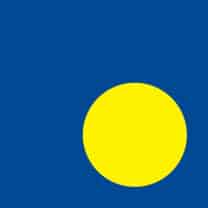
Number of seats: 8
The Democratic Party (DS) was officially founded in 1990 by a group of Serbian intellectuals as a revival of the original Yugoslav Democratic Party. The DS is a firm supporter of Serbia’s integration into the European Union and co-operation with the ICTY. Concerning Kosovo, they stress the importance of the standards before the status. For some time it was unclear in what direction the party would head, but the party has adopted a social democratic orientation, seeking contact with parties of the social democratic family all over Europe and officially confirming it on the party congress.
Lutovac was a candidate for the Presidency of the party in the 2016 election, but lost to Dragan Šutanovac. When Šutanovac resigned in 2018, Lutovac was elected as President of the Democratic Party on 2 June 2018. Thus, in 2020 the DP and other opposition parties boycotted the parliamentary elections, which resulted in a Serbian parliament without any opposition. In 2023, the party gained 8 seats in the 'Serbia Against Violence' coalition.

The SDS was founded by Boris Tadić after he seceded from the Democratic Party in 2014. Tadić’s goal was to participate with his new party in the 2014 parliamentary elections, but unfortunately he didn’t have the time to register the new party before the election. Instead, Tadić and his supporters made a deal with the Greens of Serbia. As part of this deal, Tadić and his supporters joined the Greens of Serbia, and in February 2014 the name of the party was changed to the "New Democratic Party – Greens". The party participated in the 2014 elections and won 18 seats.
After the 2014 parliamentary election, a divergence emerged in the "New Democratic Party – Greens" between the original Greens and group of members that joined the party with Tadić. On 14 June, Tadić and his supporters seceded from the Greens and formed the "New Democratic Party", while the name of the "New Democratic Party—Greens" was changed back to the "Greens of Serbia”.
The party is social democratic, centre left, and it supports accession of Serbia to the European Union. Furthermore, it is a member of the Progressive Alliance. In the 2023 parliamentary elections it was not able to gain any seats.
Other Parties

Number of seats: 130
Aleksandar Vučić – Serbia Must Not Stop is a politican coalition led by the SNS. The list consists of various right-wing, conservative parties that joined Vučić in earlier coalitions.
SNS party (103 seats)
See SNS below for all information
SDPS (6 seats)
In October 2009 the newly established centre-left Social Democratic Party of Serbia (SDPS) was founded and is currently led by Rasim Ljajić. The main aim of the party is Serbia’s accession to the European Union, the preservation of territorial integrity of the country, regionalization of Serbia and the reduction of state administration. Furthermore, it is of crucial importance to increase the living standards of the people.
PUPS (6 seats)
The Party of United Pensioners of Serbia (PUPS) was founded in 2005, and is currently led by Milan Krkobabić. As the name gives away, the party advocates for pensioners' interests and is categorised as a socially conservative party.
ZS (3 seats)
Healthy Serbia (ZS) is a right-wing, populist, national conservative party founded in 2017 and led by Milan Stamatović. It advocates closer relations with Russia and China, and opposes sanctions on Russia due to the invasion of Ukraine.
SNP (2 seats)
The Serbian People's Party (SNP) is a right-wing faction founded in 2014. The populist and national conservative party is led by Nenad Popović. The party favours good ties with Russia, although it condemned the 2022 Russian invasion. It opposes EU membership.
SPO (2 seats)
The Serbian Renewal Movement (SPO) is a centre-right party, founded in 1990 by Vuk Drašković and Vojislav Šešelj. It is a liberal, monarchist, nationalist party.
PS (2 seats)
The Movement of Socialist (PS) is a left-wing, nationalist party formed in 2012 by Aleksandar Vulin and currently led by Bojan Torbica. It is Eurosceptic and in favour of further cooperation with Russia and China.
NSS (1 seat)
The People's Peasant Party (NSS) is an agrarian, right-wing faction, founded in 1990 by Dragan Veselinov, currently led by Marijan Rističević.
USS (1 seat)
The United Peasant Party (USS) is an agrarian, cenre-right party, founded in 2000 and led by Milija Miletić.
SL (1 seat)
Serbian Left is a social, left-wing party led by Radoslav Milojičić and successor of the Communist Party.
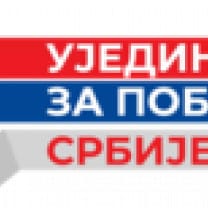
Serbia Against Violence is the major political opposition to the SNS-led coalition. Below the individual parties that were able to secure seats in name of the coalition.
SSP (16 seats)
The party of Freedom and Justice (SSP) was founded in 2019 after a merger of the green ecological party and Serbian left. Since its inception, it has played itself as a major opposition party in Serbia. The SSP is orientated towards social democracy and green politics, placing it on the centre-left of the political spectrum. It advocates and supports the accession of Serbia to the European Union, and has presented anti-corruption laws.
NPS (12 seats)
The People's Movement of Serbia (NPS) is a centre-right party. Its leader, Vuk Jeremić says he is pro-EU, but opposes Serbia entering NATO. The party co-operates closely with the PSG.
ZLF (9 seats)
The Green-Left Front (ZLF) is a green political party, preceded by 'Do not let Belgrade drown'. It is a progressive, left-wing party supportive of solidarity and social and environmental justice. The party is led by Radomir Lazović.
SRCE (9 seats)
Serbia Centre is a centrist party led and founded by Zdravko Ponoš. Ponoš was the presidential candidate for the united opposition during the 2022 presidential elections. SRCE split from the People's Party in 2023. It supports Serbia's accession to the EU.
Democratic Party (8 seats)
See separate page for DS below
EU (5 seats)
Ecological Uprising is a green party led by Aleksandar Jovanović Ćuta. Formed as a protest movement it gained attention during the 2021-2022 environmental protests. Formed as a party We Must in the 2022 elections, it later split from the Together party in 2023.
PSG (3 seats)
Movement of Free Citizens (PSG) is a liberal political party led by Pavle Grbović. It is pro-EU and a member of the Alliance of Liberals and Democrats for Europe.
NLS (2 seats)
New Face of Serbia (NLS) is a conservative, monarchist, centre-right party founded in 2022, led by Miloš Parandilović. Parandilović was previously a member of the Movement for the Restoration of the Kingdom of Serbia.
USS Sloga (1 seat)
United Trade Unions of Serbia "Sloga" is a trade union and left-wing party, founded in 2008 by Željko Veselinović. Its ideology consists of labourism, syndicalism and anti-neoliberalism.
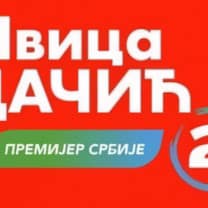
Led by the Socialist Party of Serbia, the parties in this coalition were earlier involved in the coalition with the SNS of Aleksander Vucic. See all parties involved in this coalition below.
SPS (12 seats)
The Socialist Party of Serbia (SPS) is a centre-left faction founded in 1990 by Slobodan Milošević, now led by Ivica Dačić. The party is controversial, as it opposes sanctions against Russia amid the Ukraine war and is alleged of holding deep ties to Moscow.
JS (5 seats)
United Serbia (JS) is a right-wing party founded in 2004. It is led by Dragan Marković Palma and described as national-conservative, populist and advocates regionalism.
ZS (1 seat)
Greens of Serbia (ZS) is a centre-left party founded in 2007. It advocates solidarity, social justice, ecological wisdom and direct democracy. ZS is led by Ivan Karić.
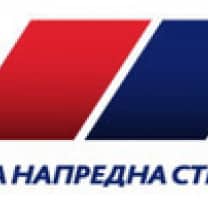
Number of seats: 103
The SNS was formed as a group of breakaway MPs in the parliament from the Serbian Radical Party (SRS). The party was registered on 10 October 2008. The SNS is a centre-right, conservative, populist party. Deputy leader at that time, Aleksandar Vučić, said that the new party's goal would be to "fight for a higher standard of living, combat against crime and corruption, and beat the regime of Boris Tadić and Ivica Dačić". Preserving the country's territorial integrity, according to him, will also be one of the SNS goals, while the party will have "a clear opposition stance”. Currently the party does not have an opposition stance anymore: in 2012 SNS Tomislav Nikolić became president and in the parliamentary elections of 2016 SNS got almost half of the votes and, due to the electoral system in Serbia, an absolute majority in the parliament (131 out of 250 seats in the National Assembly).
The popularity of the party was reaffirmed during the 2017 presidential elections in which Vučić won. Under the leadership of Vucic relations with Kosovo were normalised, EU accession negotiation kicked off and generally speaking Vucic is perceived as a successful fighter against corruption and organised crime. Not a small part of Serbian electorate believes that when Vucic promises something, it will happen. At the same time the opposition is accusing the SNS increasingly controlling the media and destroying their political opponents through tabloid propaganda by simply calling them criminals or prosecuting them without clear evidence.
In recent years, SNS under the rule of Aleksandar Vucic, has been able to remain in the ruling seat. However, popularity is diminishing slowly but steady.
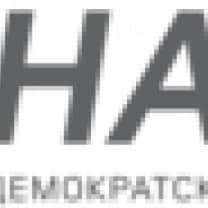
Number of seats: 14
The National Democratic Alternative (NADA) is a national-conservative political coalition. It opposes same sex civil union, supports the restoration of the monacrhy and supports the Bosnian entity Republika Srpska in their bid to secede. They are composed of the New Democratic Party of Serbia (NDSS) of Miloš Jovanović (7 seats) and Movement for the Restoration of the Kingdom of Serbia (POKS) of Vojislav Mihailović (7 seats).
We - The Voice from the People is a populist, right-wing party founded in 2023, just before the elections in December. The party's main representative is Branimir Nestorović, a prominent pulmonologist and conspiracy theorist. It has a Russophile, anti-vax, conspiracy theorist ideology.

The Alliance of Vojvodina Hungarians is a regionalist party founded in 1994, representing the Hungarian minority in Serbia. It is depicted as a centre-right party, advocating the Hungarian minority's and conservative interests.
4 Biographies
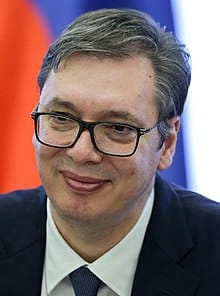
Aleksandar Vučić is born on 5 March 1970 in Belgrade. He has been the First Deputy Prime Minister of Serbia, from 2012 till 2014. In 1993 his political career started: he joined the Serbian Radical Party (SRS) and was elected to the National Assembly. Two years later he became secretary-general of SRS. He ran in the Belgrade mayoral election twice, in 2004 and again in 2008, losing both times to candidates from the Democratic Party (DS).
In March 1998, Vučić was appointed Minister of Information in the government of Mirko Marjanović. Following rising resentment against Milosevic, Vučić introduced fines for journalists who criticized the government and banned foreign TV networks. He recalled in 2014 that he was wrong and had changed, stating “I was not ashamed to confess all my political mistakes.” In July 2012 Vučić became Minister of Defense, but stepped down after a year due to a cabinet reshuffle. At the same time he was appointed Vučić became the First Deputy Prime Minister. Because his SNS party became the biggest at the 2014 elections, it was likely he became Prime Minister. Since 2017, he has assumed office as President of Serbia and was re-elected in 2022. He has been described as a successfully populist, autocratic politician, responsible for the decline of press freedom and civil liberties.
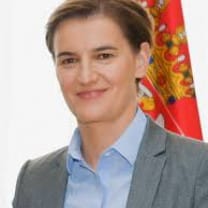
Ana Brnabić has been the Prime Minister of Serbia since 29 June 2017, her appointment is very unique given the fact that she is the first woman to become Prime Minister. On top of that, she also is the first openly gay person to hold office in Serbia. She began her role in the government as Minister of Public Administration and Local Self-Government of Serbia from 2016 till 2017, after then Prime Minister Vučić became President he put Brnabić forward as his succesor, after she was voted in office by parliament with 157 of the 250 votes. Before being appointed to the government, she worked as director of Continetal Wind Serbia, concerned with implementation of investment, worth €300 million, into a windpark in Kovin.
In 2018 she was ranked by Forbes magazine as the 21st most powerful female political leader and 91st most powerful woman in the world. Brnabić describes herself as a pro-European and technocratic prime minister. Opposition leaders and some observes describe her as a mere puppet of Vučić, whose presidency according to the Constitution is largely ceremonial with no significant executive power. Brnabić never denied this, and even said that Vučić should act as a "mentor" of prime minister
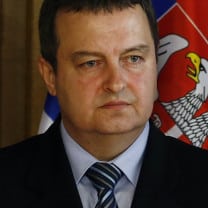
Ivica Dačić was born in Prizren on 1 January 1966. He graduated from the Faculty of Political Sciences in Belgrade. Dačić became a member of the Socialist Party of Serbia under Slobodan Milosevic. The party went into opposition with the ousting of Milosevic in 2000. Since then Dačić has invested in transforming the party. By choosing the pro-European coalition with the DS, he prevented the formation of a right wing radical coalition. Dačić favours younger party officials within his party and is the promoter of the so-called new socialism. Dačić became a member of the Serbian Parliament in 2004 and was a candidate in the presidential elections that year. In 2006 Dačić was elected leader of the Socialist Party of Serbia. The Socialists returned to government in 2008. Dačić has been Prime Minister of Serbia from 2012 till 2014. Before this he served as First Deputy Prime Minister in 2008 till 2012 and was the Minister of Internal Affairs.
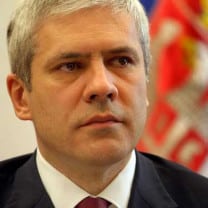
Boris Tadić was born 15 January 1958 in Sarajevo, Bosnia and Herzegovina. He graduated from the Faculty of Philosophy at the University of Belgrade with a degree in social psychology. Tadić was a member of the anti-communist dissident movement in Yugoslavia in the 1980s and was arrested and imprisoned several times by the communist authorities.
Tadić has been a member of the Democratic Party (DS) since 1990, and served as its deputy leader, before he was elected as the party leader in 2004 and re-elected in 2006. In 2000, in the months following the overthrowing of the Milosevic regime, he served as Minister of Telecommunications in the Federal Republic of Yugoslavia. From March 2003 to April 2004 he was the Minister of Defence of Serbia and Montenegro, instituting democratic reforms and transforming the military to be NATO compliant. Boris Tadić served as President of Serbia from 2004 to 2012, which are two terms. In 2012 he resigned to trigger an early election. Following his defeat in the 2012 presidential election and poor party ratings, he stepped down in November 2012 to take the position of the party's Honorary President. After a split with the new leadership in January 2014, Tadić left the Democratic Party and formed his own bloc: the Social Democratic Party, which currently holds no seats in parliament. Tadić strongly advocates close ties with the European Union and Serbia's European integration.
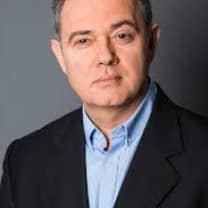
Zoran Lutovac is a former diplomat who currently is the President of the Democratic Party. From 2008 till 2013, Lutovac was Ambassador of Serbia to Montengro. He graduated from the University of Belgrade Faculty of Political Sciences. After this he became a lecturer at the same faculty and worked at other universities. Lutovac joined the Democratic Party in 1996 and was chairman of the committees for ethnic minorities from 1997 till 2003 and chairman of the committee for human and minority rights from 2004 till 2008. Lutovac was a candidate for the President of the Democratic Party at the party election in 2016, but lost to Dragan Šutanovac. After Šutanovac resigned in 2018, Lutovac was elected President of the Democratic Party on 2 June 2018.
Subscribe to our newsletter
